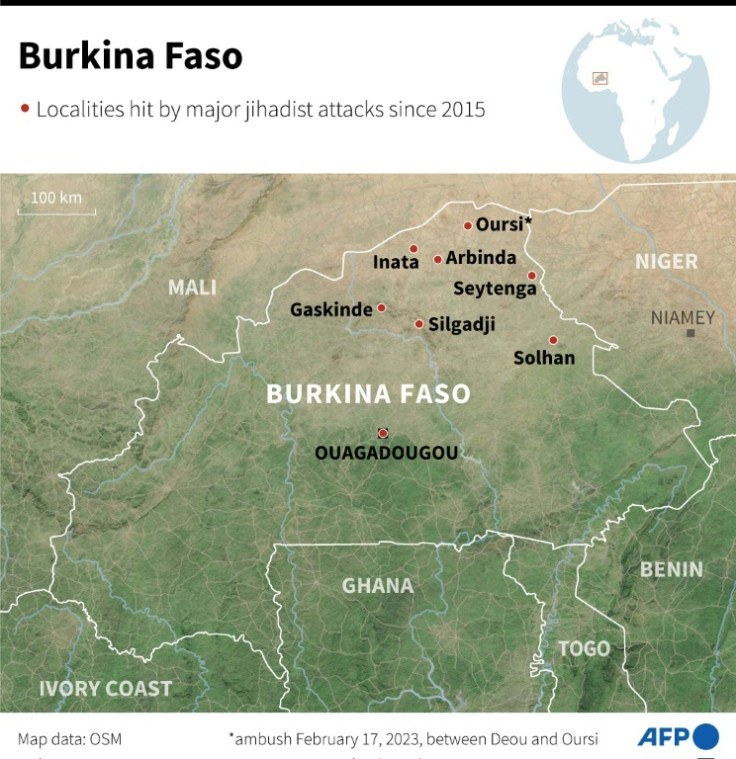Burkina Expels Reporters In Latest Tensions With France

Burkina Faso has expelled correspondents from France's Le Monde and Liberation dailies, the newspapers said on Sunday, the latest move by the junta ruling the west African country against French media.
The move is the latest deterioration in relations with former colonial power France since current military junta leader Ibrahim Traore seized power in September.
Le Monde said it "condemns in the strongest terms" the "arbitrary decision" to expel its correspondent, Sophie Douce, and her colleague from Liberation, Agnes Faivre.
Burkina Faso, which witnessed two coups last year, is battling a jihadist insurgency that spilled over in 2015 from neighbouring Mali, which is also run by the military.
Both have vowed to recover land seized by the jihadists but have emphasised national "sovereignty" over the strategy.
In both countries, tensions with France at government level have been accompanied by anti-French demonstrations and a growing alliance with Russia.
In March, the Burkina junta scrapped a 1961 accord with France on military assistance, only weeks after it told the French ambassador and troops supporting its anti-jihadist campaign to leave the country.
It has also ordered France 24 news channel and Radio France Internationale (RFI) off air.
Le Monde said journalists Douce and Faive were summoned by authorities on Friday evening and given 24 hours to leave the country. They landed in Paris on Sunday morning, it said.
Liberation said the deportations were "absolutely unjustified expulsions" and suggested they were linked to an investigation into abuse by the military it published on Monday.
It said its probe "into the circumstances in which a video was filmed showing children and adolescents being executed in a military barracks by at least one soldier" had "evidently strongly displeased the junta".
Burkina government spokesman Jean-Emmanuel Ouedraogo had criticised the article as "manipulations disguised as journalism to tarnish the image of the country".
On Monday, the junta suspended broadcasts by France 24 after the channel interviewed the head of Al-Qaeda in North Africa, saying it was "legitimising the terrorist message".
France 24 retorted that Burkina's "security crisis ... must not be a pretext for muzzling the media".
In December, the junta suspended RFI, accusing the radio station of airing a "message of intimidation" attributed to a "terrorist chief".
Both RFI and France 24, which cover African affairs closely and are popular in African francophone nations, have also been suspended in Mali.
Soldiers in Burkina Faso, one of the world's poorest nations, staged two coups in 2022 over the government failure to tackle the threat from jihadist groups.
More than 10,000 civilians, troops and police have been killed, according to one NGO estimate, and at least two million people have been displaced.
Official figures say jihadists effectively control about 40 percent of the country.
Junta leader Traore vowed to recover lost territory after he took power.
But attacks have escalated since the start of the year, with dozens of soldiers and civilians killed every week.
Media rights organisation Reporters Without Borders alleged the junta was targeting the media to "camouflage its abuses".

© Copyright AFP 2024. All rights reserved.




















